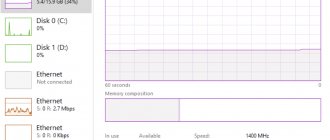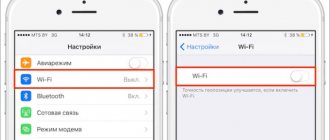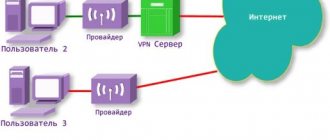Everyone has heard about GSM roaming. Many people even know that there are several types of roaming. For those who don't know, we'll tell you about it. In addition, we will explain how roaming works and what is included in this concept. After reading this article, you will know everything about using your home SIM card outside your home region. Let's say once again that we will talk specifically about GSM roaming. There are other types of roaming, but we'll leave those for later.
What is roaming and how does it work
GSM roaming is a situation in which a device connects to a network that is not intended to work with this device and is not its home network.
Roaming has two types: intercity and international. In addition, there is voice and SMS roaming, and data roaming.
Connecting to roaming begins with updating your location information. In this step, the device looks for a network to connect to and does not find a home network. In this case, a request is sent to the available network with information about the user and a request for permission to roam. If everything goes well, the device connects to the local network, which redirects all information to the home network.
Free Wi-Fi
If possible, try to book a room in a hotel that has free Wi-Fi. The ability to regularly access the network without paying will keep the costs of using the World Wide Web to a minimum. Even if Wi-Fi in a hotel is paid, it will probably be cheaper than using mobile Internet. Using the Internet exclusively at the hotel, you can use offline maps (for example, Here) while walking.
However, you can also use free Wi-Fi in cafes, libraries and other public places. Wi-Fi is always available at McDonalds, Starbucks, Burger King and Apple Store. A special Wi-Fi icon indicates that the establishment has Internet.
It is also possible to connect to closed Wi-Fi. Wi-Fi Map, WiFi Spot, WiFiMaps and other applications will help you find out the password.
How to enable and disable roaming
Before traveling outside your hometown, you should make sure that your cellular operator will provide you with roaming service. This can be done in the office, or in your personal account, or by calling the support service.
You cannot disable or enable roaming in the phone menu. You can only enable airplane mode on your phone, in which it will not connect to the network, or disable automatic network selection by selecting only your home network to connect. Luckily, you can turn off data while roaming. As a rule, it is mobile data that consumes the most money, unless you sign up for a special roaming tariff. You will find all the necessary options in the network settings section of your smartphone.
Roaming guide: which operator to go abroad with
Traveling abroad is puzzling with the question of profitable and stable Internet access.
Most often, it’s difficult for us to quickly choose the right option for staying in touch with loved ones, keeping up to date with things at work, publishing relevant stories and pissing off vacation-free subscribers with posts from a trip. There are many options: you need to understand all the offers on the operator’s websites (and check the information under the asterisks), look at the options for tourist SIM cards and figure out whether you can buy a local one. For long trips, a local SIM card will be a priority, but it can still have pitfalls due to the specifics of the purchase, Internet prices for visitors, and the need to remain accessible through your usual phone number. On the other hand, if you often travel around different countries or prefer short trips on weekends and holidays, fiddling with a SIM card upon arrival is not very pleasant, and the prepaid package of services may turn out to be too large and “gobble up” more money than would be spent with everyday SIM card
We decided to figure out what options you can consider before your trip, and which of our operators offers the best prices for Internet abroad. We looked at examples in Moscow. In other regions, the cost may differ, but our article will help you get a general impression of what is happening.
Megaphone
Starting from April 15, 2022, MegaFon has canceled various roaming options and made a universal service for travel. For the 100 most popular countries, uniform conditions will apply: pay from 189 rubles per day (depending on the region) and you can use communications, which will be charged the same as when you are in your home region. In other words, the usual package of minutes and gigabytes is consumed. For example, for Spain this option will cost 349 rubles per day of use.
New roaming conditions are activated automatically. The first time you access the Internet or make an outgoing call to Russia, a daily subscription fee for the service will be charged. After activation, users will have access to 1 GB of Internet for a day (2 GB in the US, Virgin Islands and Puerto Rico) and 60 minutes for any incoming and outgoing calls to Russia.
MTS
For travelers, MTS has 9 tariff options, which represent different options for accessing calls and the Internet. “Zabugorische” - for a subscription fee of 350 rubles for popular countries. The list of popular operator countries includes: Greece, Egypt, Thailand, Turkey, Portugal and two dozen other destinations. As in the case of MegaFon, minutes and gigabytes will be debited from connected tariff packages. Don't forget to check the list of countries where this option is not available. For example, you won’t be able to use Zabugorishche in Tunisia and the Maldives.
“Zero without Borders” is an option for users who need access to calls while traveling. The service costs 145 rubles per day. It allows you to use 45 minutes of incoming and 45 minutes of outgoing calls to Russia for popular countries from the MTS list. For countries that are not on the list, there are restrictions - you should familiarize yourself with them first. For example, in Tunisia, incoming calls cost 50 rubles per minute.
The cost starts from 450 rubles per month, for this amount you can use “unlimited” Internet. Prices and restrictions for this option vary, for example, in Finland and Montenegro, 100 MB is provided at maximum speed, after which the speed is reduced to 128 Kbps, so before your trip, do not forget to check with MTS the subscription fee for the country you are planning to visit. For example, in Bosnia or Uzbekistan this option will cost 550 rubles per day, and for the Bahamas and Iceland the price will be 1,300 rubles per day of use. This option has two additional options “Maxi BIT Abroad” and “Super BIT Abroad” which offer more traffic.
Beeline
Beeline has a special tariff for travel “All for 1800 + Roaming” It includes 15 GB of Internet throughout Russia and for 77 popular countries from the operator’s list, the first 100 megabytes of daily traffic are available at maximum speed, then the speed will be reduced to 128 Kbit/ sec.
For owners of other tariffs, it is provided, which for 350 rubles per day provides access to the Internet on the same conditions as the “All for 1800 + Roaming” tariff. As part of this option, you can purchase 1 GB at maximum speed for 99 rubles; the ability to connect it becomes available after the daily traffic of 100 MB is exhausted. It is worth keeping in mind that connecting an additional gigabyte is an additional cost in addition to the subscription fee.
Yota
Owners of Yota cellular communications will have to study the conditions for each country they are going to visit, because the operator does not provide standardized roaming options. During a trip to the EU countries, 1MB of traffic will cost 20 rubles, and they are charged as follows - the user pays 20MB, the operator provides the next 20MB for free. There are 1024 megabytes in one gigabyte, divide 1024 by 2 and multiply by 20, it turns out 1GB of traffic will cost 10,240 rubles. 30 minutes of incoming calls will cost 39 rubles per day, and outgoing calls to Russia and Germany will cost 19 rubles per minute.
Tinkoff Mobile
The Tinkoff Mobile operator has three roaming offers. For European countries, it is possible to connect to the 100 MB service per day for 149 rubles, and for other countries from the operator’s list, a similar package will cost 299 rubles. Outgoing calls within Europe are charged at 11.90 rubles per minute, worldwide at 19.90 rubles per minute. For 49 rubles per day you can connect to unlimited access to instant messengers WhatsApp, Viber, Facebook Messenger, iMessage, TamTam and IMO.IM. This option includes text messaging only, without the ability to send media files or access audio and video calls.
As for countries that are not included in the list of popular ones from the operator, the cost of roaming, for example, when traveling to Japan, will look like this. Calls will cost 39.9 rubles per minute; for incoming calls there is the option of 30 incoming minutes for 59 rubles per day. Unlimited messengers for voice calls and text messaging will cost 149 rubles, and a package of 50 megabytes will cost 399 rubles.
Tele2
With Tele2, the specific cost of calls, messages and the Internet depends on the country you are going to. For example, in Turkey, 1 MB of Internet costs 25 rubles, all incoming ones are 15 rubles per minute, and outgoing ones to Russia are also at the same price. The operator has a special “Premium” tariff, which includes 50 GB and 2000 minutes, and international roaming is not charged.
In addition, Tele2 offers the “Unlimited Internet Abroad” option, which for 350 rubles per day provides 200 MB at maximum speed, and then the speed will be limited to 128 Kbps. It is worth noting that even with such a limitation, you can quite comfortably use instant messengers and social networks.
Drimsim
Choosing a travel SIM for travel is a great way to save money, as long as you don't have to stay in touch with your number.
For traveling within the European Union, 1 megabyte of Internet traffic will cost 0.01 euros, so one gigabyte will cost 10.25 euros, which is approximately 739 rubles at the time of publication. One minute of a call to Russia will cost 0.3 euros. Before traveling to a specific country, it would be a good idea to familiarize yourself with the tariff schedule of the tour operator. For example, Drimsim is completely unsuitable for traveling to the Maldives, since one minute of calls to mobile numbers there costs 3 euros, and one megabyte of Internet is charged at 23 euros.
Drimsim has a referral program that allows you to receive 7 euros for each invited participant. Thus, by inviting a friend to order Drimsim using a referral link, both will receive a reward.
Tez Telecom
This tourist SIM card is for active mobile Internet users. Tez Telecom offers 3 packages: 3 GB for 24.90 euros, 5 GB for 39.90 euros and 10 gigabytes for 69.90 euros.
In addition to packages with gigabytes, the operator provides per-megabyte pricing. When traveling in Germany, Spain or Estonia, 1 megabyte costs 1 euro cent, which is approximately 72 kopecks. The cost of a SIM card for traveling to 124 countries from the operator’s list will cost 15 euros. If you plan to use a per-megabyte tariff, it is better to study the operator’s tariffs for a specific country before traveling. For example, 1 MB in the Dominican Republic will cost 5 euro cents, and in Cuba the same megabyte will cost 1.24 euros.
When choosing a SIM card only for the Internet, you need to weigh the pros and cons. First of all, this solution will be convenient for owners of smartphones with support for two SIM cards, as well as tablets.
We randomly selected different countries and compared the cost of Internet from different operators there. The list includes: all-season and resort Europe, Arab countries, neighboring countries, Africa, a couple of popular Asian countries, islands, as well as North and South America. Here's what we got:
Link to table in Google Docs











